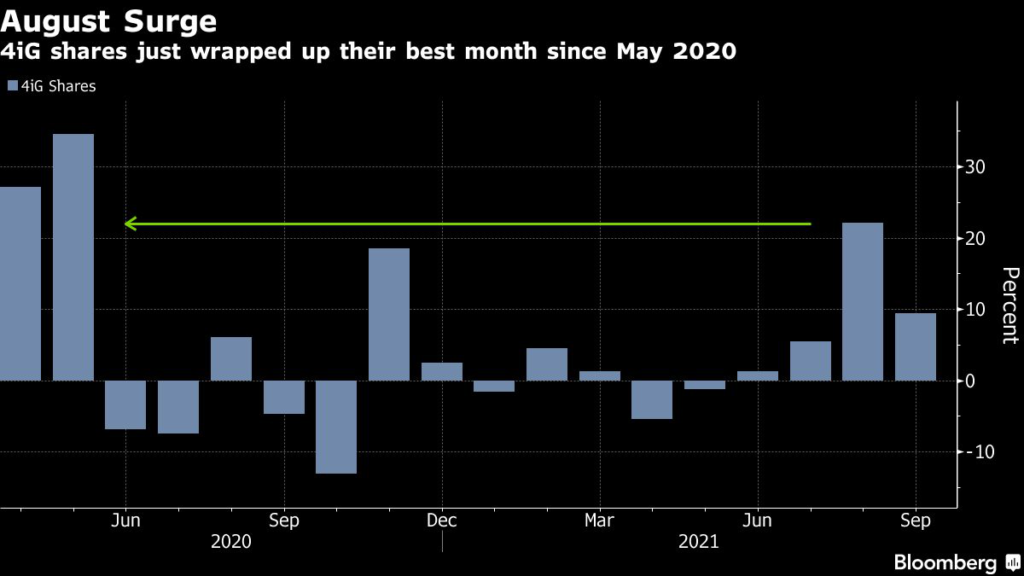(Bloomberg) — Hungarian tech company 4iG Nyrt. is finally winning back stock market investors after a series of deals and state contract wins.
4iG shares jumped 22% in August, their strongest month since May last year, buoyed by the efforts of the country’s second-largest IT systems integrator by revenue to broaden its horizons through M&A into telecommunications. It announced plans in March to acquire the local business of Romania’s Digi Communications N.V., Hungary’s fourth-largest telecoms company. In July, 4iG said it would buy Czech firm PPF Group NV’s Telenor d.o.o. operation in Montenegro.
Most recently, 4iG said it plans to buy control of Antenna Hungaria Zrt., Hungary’s fifth-largest telecoms company, a move that could boost 4iG’s market share within the television and radio segments, according to KBC N.V. Equitas analyst Szabolcs Grebel.
“In addition to significant growth, 4iG has become exciting due to the acquisitions, which are also due to the soaring share price,” Grebel wrote in a Sept. 1 report following the company’s second-quarter results. “The process where 4iG would become a key player in the telecommunications industry is just getting started.”
Government contracts are helping too, for a company that earned 73% of its revenue from the state last year, according to Chief Executive Officer Gellert Jaszai. 4iG said on Friday it is part of a group of companies shortlisted for a major state IT project, prompting a surge of as much as 6.7% in its shares in Budapest.
Still, it’s proving a long road back for 4iG to the heights of June 2019, when the stock hit an all-time peak amid the company’s plans to acquire bigger rival T-Systems. The failure of that deal saw the shares lose almost three-quarters of their value by early 2020, and they remain about 25% short of the record.
4iG’s links to the state may be a factor holding back some investors, said Nora Nagy, a telecommunications analyst at Erste Bank in Vienna.
“The company is run by a close ally to the government, which could be a reason why some investors opt to avoid the stock,” she said in emailed comments, adding it isn’t clear how 4iG will finance its acquisition and expansion plans.
Another factor that may slow growth in Hungary is that the Digi business it plans to purchase doesn’t hold a 5G license, Nagy said. “This makes 4iG’s penetration harder in the mobile market.”
More stories like this are available on bloomberg.com
©2021 Bloomberg L.P.











